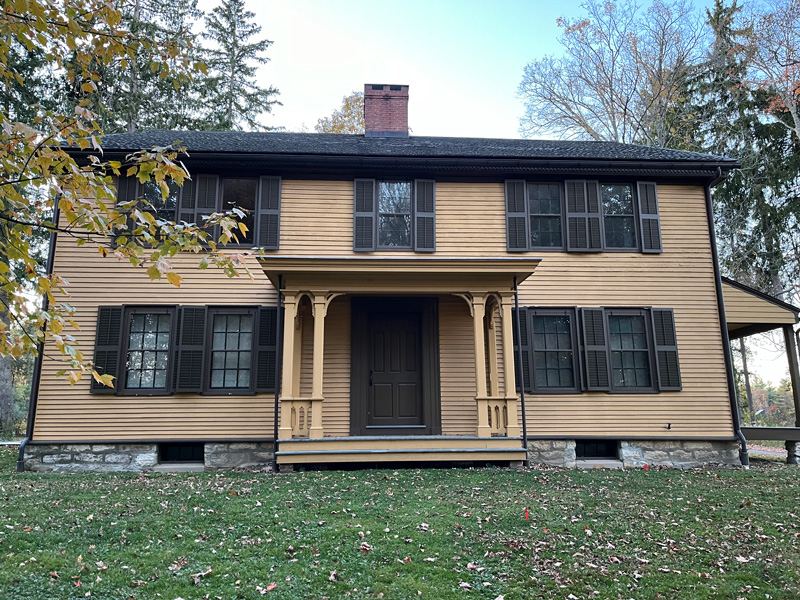
Nary a week passes without someone asking me, “Trixie, were Herman Melville and Nathaniel Hawthorne just friends or were they lovers?” My usual response is, “I don’t know, I wasn’t there.”
However, last month, I was there. I stood inside Herman Melville’s study in his house, Arrowhead, right outside Pittsfield, Massachusetts, where he wrote Moby Dick.
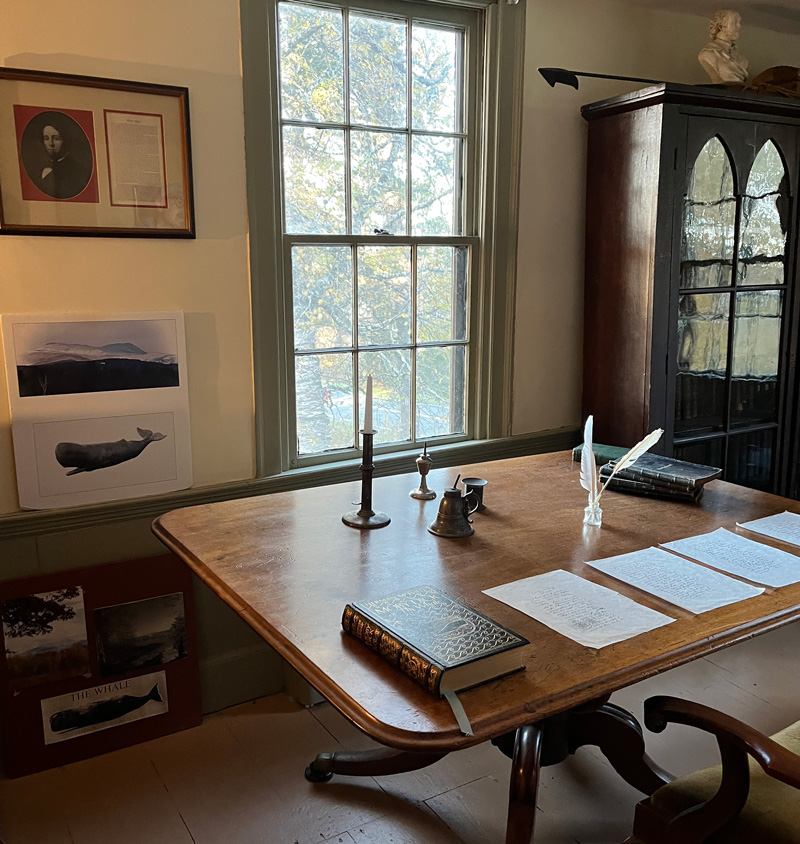
I decided to take a tour with Q-MOB (Queer Men of the Berkshires) of Herman Melville’s house about an hour from Hudson. The tour gave a new perspective to the 19th century suspected bromance.
One would think that Melville wrote Moby Dick in a small shack on Cape Cod. Actually, Herman Melville wrote Moby Dick (1850-1851) in his studio in the Berkshires, overlooking Mount Greylock (some say the mountain looks like a whale breaching the water, but that’s a stretch).
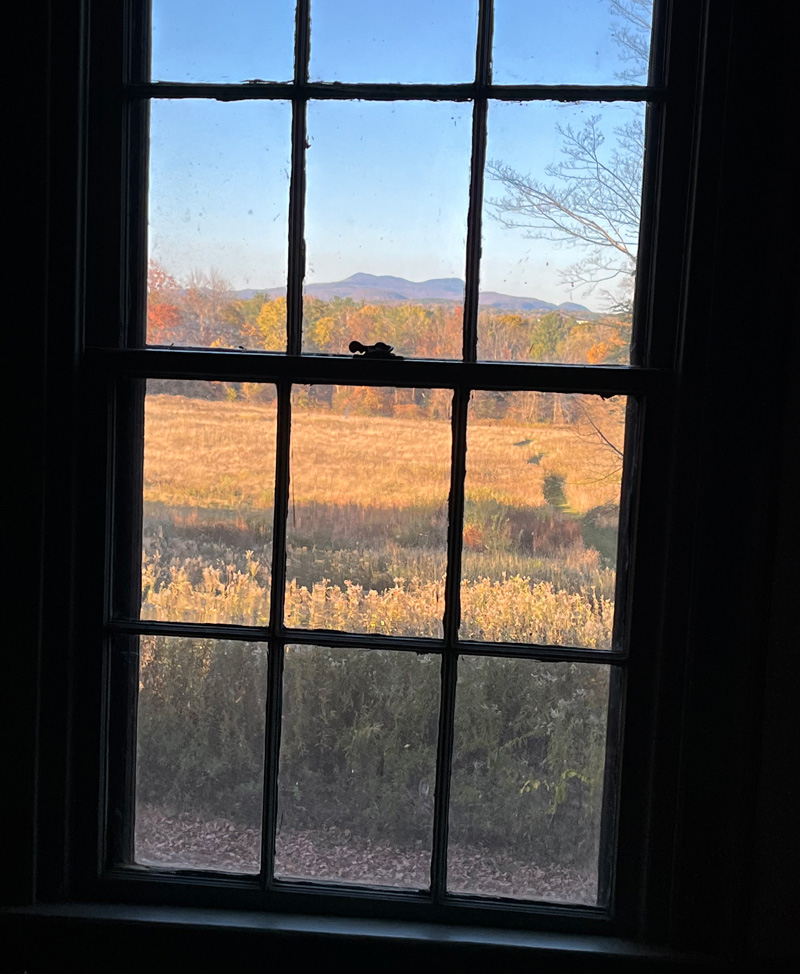
As I was standing in Melville’s living room, looking at the engravings in his chimney from one of his short stories, the guide started talking about the nature of the relationship between Herman Melville and Nathaniel Hawthorne. Each man was married to a woman and had kids. The hot goss on Melville and Hawthorne is that they were very close friends who spent many nights together in the loft of Melville’s barn, drinking brandy and smoking. Hawthorne had a guest bed right off Melville’s study. When they first met, they challenged each other to a footrace, in front of their wives.
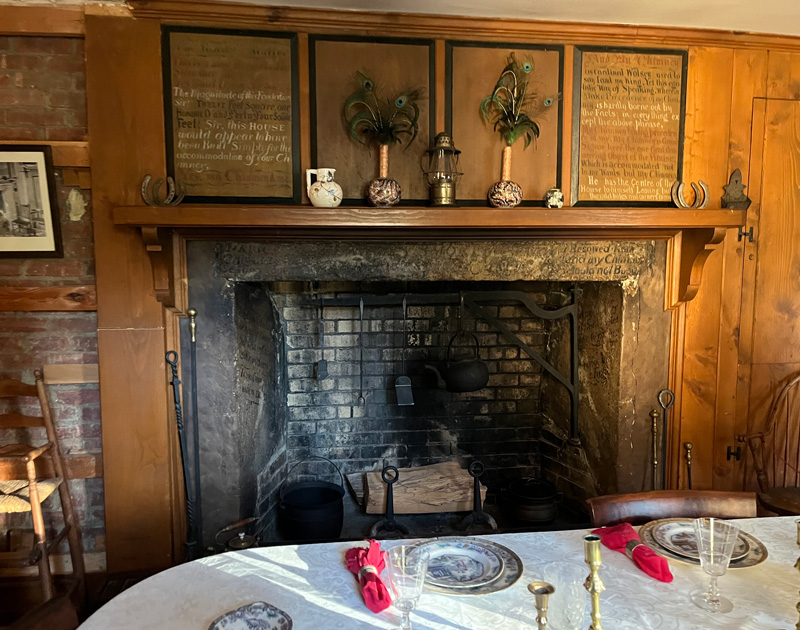
There are hundreds of letters between Melville and Hawthorne, extolling their deep friendship and love for one another. Nathaniel Hawthorne was strikingly attractive and known for being an extreme introvert (he hid in bushes to avoid people). By the time he met Melville, Hawthorne had published The Scarlet Letter in 1850 and was a successful author. Melville, on the other hand, had limited success. The public in the 1850s did not know how to react to Moby Dick. The reviews were not great, and Melville ultimately gave up writing, moved to New York, and worked as a customs officer.
Were the two gay? Maybe. It’s hard to say.
In the mid-1800s, there was little social construct or even language or terminology for homosexual relationships. The word, homosexual, itself did not exist until the late 1860s. Back then, male bonding just happened. It’s not like today. They were not going to a Subaru dealership together, cosigning on a new Outback.
Herman Melville spent years on all-male whaling vessels (wink, wink). There are passages in Moby Dick that raise a queer eyebrow, like this one in Chapter 11:
“We had lain thus in bed, chatting and napping at short intervals, and Queequeg now and then affectionately throwing his brown tattooed legs over mine, and then drawing them back; so entirely sociable and free and easy were we…”
- Moby Dick
Melville did have children, and later grandchildren. His granddaughter, Eleanor, inherited his estate and found the unpublished and unfinished manuscript Billy Budd in a breadbox. The book was published in 1924, which gave Melville some much-deserved, however posthumous, notoriety. In the 1920s, people reread Moby Dick.
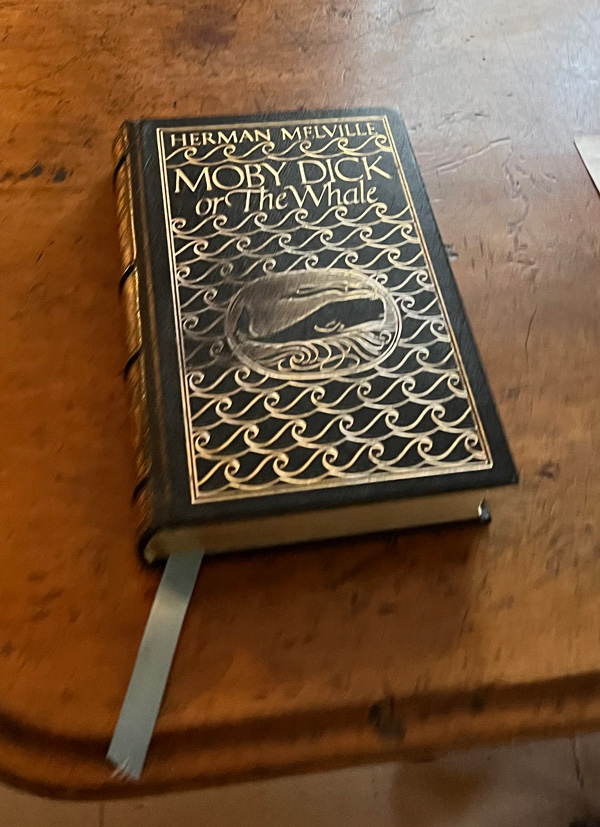
As I listened to the stories, I thought to myself, ‘Wait. Herman Melville – didn’t he write all those poems about young semi-naked working class men?’
After a quick google search in Herman Melville’s dining room, I realized that I was confusing Herman Melville with Walt Whitman, who was totally gay!
On Long Island, there’s a Walt Whitman High School and a Walt Whitman Mall, now Walt Whitman Shops. They might be one of the few high schools and malls in the country named after a gay man.
Here’s a sample of Walt Whitman’s poetry:
The young men float on their backs, their white bellies bulge to the sun, they do not ask who seizes fast to them,
They do not know who puffs and declines with pendant and bending arch,
They do not think whom they souse with spray.
The butcher-boy puts off his killing-clothes, or sharpens his knife at the stall in the market,
I loiter enjoying his repartee and his shuffle and break-down.
Blacksmiths with grimed and hairy chests environ the anvil,
Each has his main-sledge, they are all out, there is a great heat in the fire.
From the cinder-strew’d threshold I follow their movements,
The lithe sheer of their waists plays even with their massive arms,
Overhand the hammers swing, overhand so slow, overhand so sure,
They do not hasten, each man hits in his place.
- Walt Whitman
Oh Trixie, he just appreciated the male physique. You’re reading too much into it!
Yeah, whatever. If you do not believe that Walt Whitman was gay, then we cannot even talk about Gertrude Stein.
There ain't no answer. There ain't gonna be any answer. There never has been an answer.
That's the answer.
-Gertrude Stein
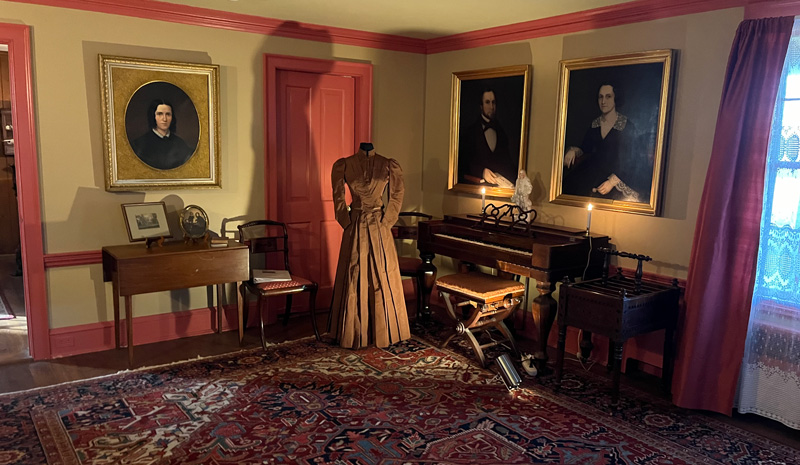
In Melville’s house, I could not help but imagine all of these authors in one room, at a cocktail party – something similar to a Parisian-style salon, hosted by Gertrude Stein and Alice B. Toklas.
Oscar Wilde would be invited. He and Truman Capote would totally hit it off. They would be in the corner chatting. They had all the good dirt on everyone. Socially-awkward Nathaniel Hawthorne would stand there, in the corner, by himself, all prim and proper, eating chips and dip. Herman Melville with a few drinks in him, the scallywag, would be telling the same whaling stories they’ve all heard before.
They would invite Mark Twain, as a tolkien heterosexual, because he’d be fun at parties. You want someone at a party to tell a good story. James Baldwin would sit there, not amused by all this tomfoolery, and might have a few notes for Mark Twain about Huck Finn. (The tolkien hetero used to be Ernest Hemingway, because he had a big house in Key West. They had to stop inviting him because he was no fun when he was drunk).
Mid-way into the cocktail party, people would wonder where was Walt Whitman? Oh, Walt? He’s been in the kitchen for the past hour, chatting with the boys on the catering staff.
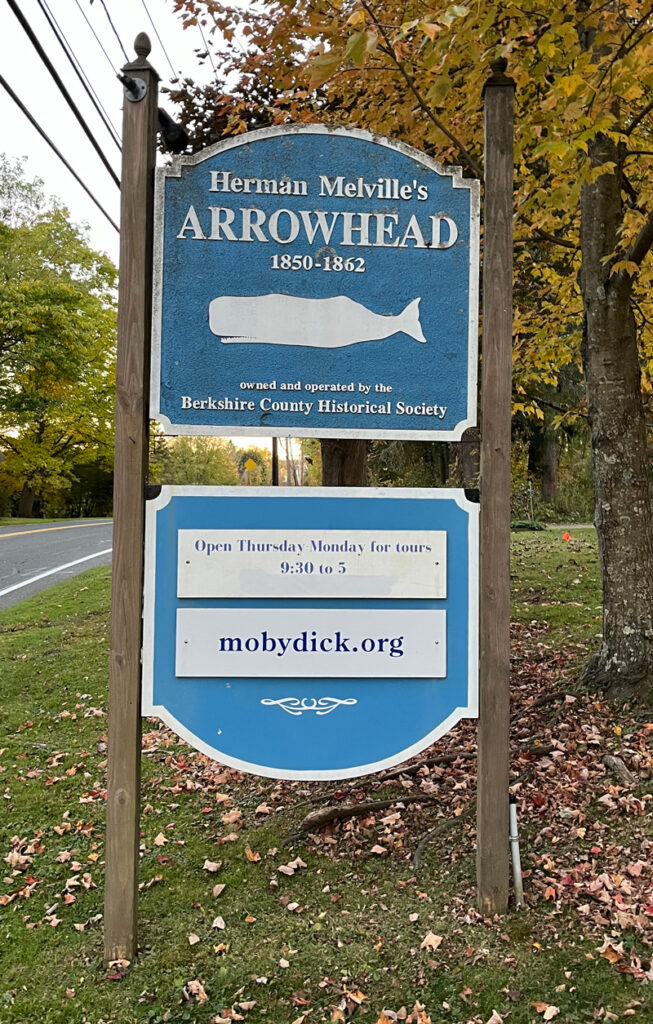
If you get the chance, visit the Herman Melville house, Arrowhead. It’s a fun trip. Who knows? Maybe you’ll be inspired to write a great whale novel, too.

Excellent article! I live in Hudson and am a docent at Arrowhead, giving tours each Saturday during the high season. I can’t wait to share this with my fellow docents! Thanks for spotlighting Arrowhead! I too would love to be a guest at your imaginary literary party.
Fun article! Loved the inclusion of a sample of Whitman’s homoerotic poetry and the comparison of what bromancers did not do together back in them whalin’ days!